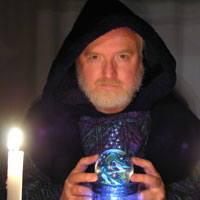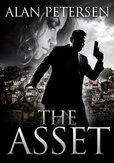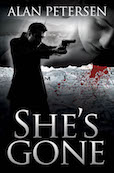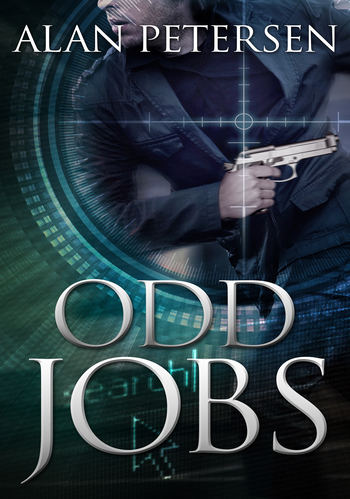|
|
Post by Daniel on Sept 17, 2015 10:43:02 GMT -5
I found an interesting article that offers some insight on how many readers finish (or even start) the books they buy. If you sell the book, will they read it?Some points from the article: - Kobo revealed that only 60% of ebooks are even opened, saying nothing about how many were finished.
- The more expensive the book, the more likely the reader would at least start it.
- Jellybooks measured a wide variety of completion rates. Some books rated high at 70-90% (considered well above the norm!) while others were 20-40%.
- Readers are more likely to finish a plot-driven genre novel than a literary novel.
- Reader attention declines early--within the first 10 to 40 percent, so strong beginnings matter.
- Once the reader reaches the midpoint of the book, they generally finish it.
The last two points mirror my own experiences. I usually give up on a book early, but if I make it past the half-way point, I usually finish it. What surprises me is how many readers are willing to spend money on a book and never read it. Even if readers get started on a book, they don't generally finish it. The article suggests that readers probably won't tell their friends about a book they never finished. These points were good information for me. I tend to "set the stage" with the first quarter of the book, although I do always try to have some kind of hook within the first few scenes. My approach has been termed "leisurely," which probably explains why I get a surge of sales upon release but little word-of-mouth to sustain those sales. My stories don't seem to fire up my readers enough to tell their friends. The sell-through on my trilogy is good once readers get past the first book, so I would probably be doing better with it if I'd made that first book more engaging. I suppose it's never too late to go back and do that, but I'm not a writer who likes to revise endlessly. |
|
|
|
Post by vrabinec on Sept 17, 2015 11:04:51 GMT -5
Cool, so I just have to make the first half good, and then not worry about the rest because they'll finish it anyway.
|
|
|
|
Post by Daniel on Sept 17, 2015 12:29:06 GMT -5
Yep, that's pretty much the takeaway. We can just hire monkeys for the second half, which does make things easier.
|
|
|
|
Post by whdean on Sept 17, 2015 13:05:17 GMT -5
I found an interesting article that offers some insight on how many readers finish (or even start) the books they buy. If you sell the book, will they read it?Some points from the article: - Kobo revealed that only 60% of ebooks are even opened, saying nothing about how many were finished.
- The more expensive the book, the more likely the reader would at least start it.
- Jellybooks measured a wide variety of completion rates. Some books rated high at 70-90% (considered well above the norm!) while others were 20-40%.
- Readers are more likely to finish a plot-driven genre novel than a literary novel.
- Reader attention declines early--within the first 10 to 40 percent, so strong beginnings matter.
- Once the reader reaches the midpoint of the book, they generally finish it.
The last two points mirror my own experiences. I usually give up on a book early, but if I make it past the half-way point, I usually finish it. What surprises me is how many readers are willing to spend money on a book and never read it. Even if readers get started on a book, they don't generally finish it. The article suggests that readers probably won't tell their friends about a book they never finished. These points were good information for me. I tend to "set the stage" with the first quarter of the book, although I do always try to have some kind of hook within the first few scenes. My approach has been termed "leisurely," which probably explains why I get a surge of sales upon release but little word-of-mouth to sustain those sales. My stories don't seem to fire up my readers enough to tell their friends. The sell-through on my trilogy is good once readers get past the first book, so I would probably be doing better with it if I'd made that first book more engaging. I suppose it's never too late to go back and do that, but I'm not a writer who likes to revise endlessly. Good post. This phenomenon is one of the subtlties of the trade writers seem unaware of. |
|
|
|
Post by Becca Mills on Sept 17, 2015 15:00:05 GMT -5
I found an interesting article that offers some insight on how many readers finish (or even start) the books they buy. If you sell the book, will they read it?Some points from the article: - Kobo revealed that only 60% of ebooks are even opened, saying nothing about how many were finished.
- The more expensive the book, the more likely the reader would at least start it.
- Jellybooks measured a wide variety of completion rates. Some books rated high at 70-90% (considered well above the norm!) while others were 20-40%.
- Readers are more likely to finish a plot-driven genre novel than a literary novel.
- Reader attention declines early--within the first 10 to 40 percent, so strong beginnings matter.
- Once the reader reaches the midpoint of the book, they generally finish it.
The last two points mirror my own experiences. I usually give up on a book early, but if I make it past the half-way point, I usually finish it. What surprises me is how many readers are willing to spend money on a book and never read it. Even if readers get started on a book, they don't generally finish it. The article suggests that readers probably won't tell their friends about a book they never finished. These points were good information for me. I tend to "set the stage" with the first quarter of the book, although I do always try to have some kind of hook within the first few scenes. My approach has been termed "leisurely," which probably explains why I get a surge of sales upon release but little word-of-mouth to sustain those sales. My stories don't seem to fire up my readers enough to tell their friends. The sell-through on my trilogy is good once readers get past the first book, so I would probably be doing better with it if I'd made that first book more engaging. I suppose it's never too late to go back and do that, but I'm not a writer who likes to revise endlessly. This is pretty much why I revised Nolander back in January. I thought my much-remarked-up leisurely beginning was probably killing it for a lot of readers. I still don't think it's super, but I hope it's better. Anyway, great post, and very interesting info from Kobo. Wow. |
|
|
|
Post by mlhearing on Sept 17, 2015 17:49:36 GMT -5
Okay, then, from now on, every book starts with (and continues with) a car crash, a murder, or a rape. I get it: I really do.
I bet there's a difference between the e-reader horde and the paper crowd. \
Seems to me that a big dose of copywriting talent goes a long way now.
|
|
|
|
Post by Daniel on Sept 17, 2015 19:03:37 GMT -5
This is pretty much why I revised Nolander back in January. I thought my much-remarked-up leisurely beginning was probably killing it for a lot of readers. I still don't think it's super, but I hope it's better. Anyway, great post, and very interesting info from Kobo. Wow. I think a 40% unopened rate shows how important it is to have a good description. Every book you buy gets added to the virtual TBR pile on your e-reader. You want readers to like the description so much that they will download your book to their e-reader and start it immediately, even if they are in the middle of something else. Let the other writer's book be the one they set aside. Once they open it, the job is to keep them reading. As it happens, I'm reading Vaetra Unveiled right now, which is something I haven't done since I released it in January 2012. Although I have no plans to go back and rewrite anything substantial, I'm finding a lot of things that I would not do today. I'm also finding things I definitely need to fix, and I'm marking them in my Kindle so I can take care of them. The way I see it, the odds of my changing a book so it better appeals to readers is no better than the odds of writing a new book that appeals better to readers. I'd rather put the energy into new writing than into rehashing old writing. On the other hand, Vaetra Unveiled is my first book and it's an introduction to my trilogy. As they say, you never get a second chance to make a first impression. In other words, I get why you changed Nolander, but I'll probably never do the same to Vaetra Unveiled. I have doubts that anything I do would truly make it better, and I worry that I might make it worse. |
|
|
|
Post by Daniel on Sept 17, 2015 19:14:04 GMT -5
Okay, then, from now on, every book starts with (and continues with) a car crash, a murder, or a rape. I get it: I really do. I'm glad somebody does. I still don't get it, probably because I'm not the kind of reader who likes that approach myself. Books that start with a bang and immediately become a roller-coaster ride are one kind that I set aside fairly early. In many cases, it seems like writers think they have to inject thriller techniques into every story, regardless of genre. I find it overwhelming and exhausting. I never seem to get a grip on the characters, which makes every reaction seem over-the-top and every emergency feel contrived. It's like watching a soap opera, with lots of violence thrown in. I don't mean to disparage thrillers. I do read some that I like. Nelson DeMille writes books I enjoy, but his books are giant tomes that take a leisurely approach with thrilling key scenes. In spite of their length, they manage to be engaging without being exhausting, IMO. |
|
|
|
Post by scdaffron on Sept 17, 2015 19:28:21 GMT -5
I found this interesting and I looked at my books. I've actually had reviewers say that I "hook them in" the first few pages, so I wondered what I did. My books start with: 1 - staring at a computer monitor, then an annoying conversation with a jerk coworker 2 - dog barfing in the back of the car 3 - vet tech restraining an angry flatulent cat 4 - argument with boss 5 - disagreement with mom 6 - discussion with boss 7 - shopping cart accident 8 - flipping a canoe So although I don't resort to crashes, murder or rape, there generally is some type of conflict. I'm re-reading #3 now for the first time since I published it, and I gotta say the opening scene with Squiggy the gigantic feline with a digestive disturbance and an attitude problem did make me laugh  |
|
|
|
Post by Becca Mills on Sept 17, 2015 22:12:45 GMT -5
Okay, then, from now on, every book starts with (and continues with) a car crash, a murder, or a rape. I get it: I really do. I'm glad somebody does. I still don't get it, probably because I'm not the kind of reader who likes that approach myself. Books that start with a bang and immediately become a roller-coaster ride are one kind that I set aside fairly early. In many cases, it seems like writers think they have to inject thriller techniques into every story, regardless of genre. I find it overwhelming and exhausting. I never seem to get a grip on the characters, which makes every reaction seem over-the-top and every emergency feel contrived. It's like watching a soap opera, with lots of violence thrown in. I don't mean to disparage thrillers. I do read some that I like. Nelson DeMille writes books I enjoy, but his books are giant tomes that take a leisurely approach with thrilling key scenes. In spite of their length, they manage to be engaging without being exhausting, IMO. Yeah, I'm with you. Unfortunately, we may be the only ones.  Actually, I don't think you need to have anything violent or shocking going on, just something more action-oriented than a character ruminating alone, two people talking in a totally ordinary way, etc. There needs to be some tension, a striking use of voice, humor (farting cats ... oh yeah) ... something to catch interest. |
|
|
|
Post by Miss Terri Novelle on Sept 17, 2015 23:32:13 GMT -5
The first sentence of the book I'm about to publish is one word long.
Douchebag.
Beta readers have responded well. Does that count?
|
|
|
|
Post by Becca Mills on Sept 17, 2015 23:43:17 GMT -5
The first sentence of the book I'm about to publish is one word long. Douchebag. Beta readers have responded well. Does that count? Sounds awesome to me!  |
|
|
|
Post by Daniel on Sept 18, 2015 6:48:48 GMT -5
The first sentence of the book I'm about to publish is one word long. Douchebag. Beta readers have responded well. Does that count? A word laced with emotion that puts me right into the character's head. Works for me. |
|
|
|
Post by vrabinec on Sept 18, 2015 8:52:04 GMT -5
I found this interesting and I looked at my books. I've actually had reviewers say that I "hook them in" the first few pages, so I wondered what I did. My books start with: 1 - staring at a computer monitor, then an annoying conversation with a jerk coworker 2 - dog barfing in the back of the car 3 - vet tech restraining an angry flatulent cat 4 - argument with boss 5 - disagreement with mom 6 - discussion with boss 7 - shopping cart accident 8 - flipping a canoe So although I don't resort to crashes, murder or rape, there generally is some type of conflict. I'm re-reading #3 now for the first time since I published it, and I gotta say the opening scene with Squiggy the gigantic feline with a digestive disturbance and an attitude problem did make me laugh  Those sound like good openings. My openings are a little darker: 1. A space ship crew getting shocked, seemingly on purpose by the ship 2. A girl being told by her step-father's drug dealer that if she doesn't come up with the money he owes, she'll "belong" to him, then he has his guys hold her down and craps on her face when she scratches him. 3. A team sent to study Checko Lake (the lake formed by the Tunguska blast) arrives to find the water warn in the middle of Siberia. 4. A grave robber tries to convince down and out kids to join him. |
|
|
|
Post by scdaffron on Sept 18, 2015 9:34:18 GMT -5
(farting cats ... oh yeah) We all knew Becca wasn't gonna overlook THAT one...hee hee  |
|
|
|
Post by carlos on Sept 18, 2015 15:07:56 GMT -5
|
|
|
|
Post by Daniel on Sept 18, 2015 18:39:36 GMT -5
Good stuff. I like the part about getting readers to start predicting what will happen early on. That shows immediate engagement. It might be better still to make their predictions delightfully wrong. |
|
|
|
Post by Alan Petersen on Sept 22, 2015 1:44:09 GMT -5
Books that start with a bang and immediately become a roller-coaster ride are one kind that I set aside fairly early. In many cases, it seems like writers think they have to inject thriller techniques into every story, regardless of genre. I find it overwhelming and exhausting. I never seem to get a grip on the characters, which makes every reaction seem over-the-top and every emergency feel contrived. It's like watching a soap opera, with lots of violence thrown in. I don't mean to disparage thrillers. I do read some that I like. Nelson DeMille writes books I enjoy, but his books are giant tomes that take a leisurely approach with thrilling key scenes. In spite of their length, they manage to be engaging without being exhausting, IMO. That's my bread and butter.  But that is what a lot of readers in the thriller genre like (that's what I like to read). But it's not for everyone. |
|
|
|
Post by Becca Mills on Sept 22, 2015 1:47:46 GMT -5
(farting cats ... oh yeah) We all knew Becca wasn't gonna overlook THAT one...hee hee  We had two couples -- colleagues of my husband's -- over for lunch on Sunday, and the Elder Widget let rip with a long, loud & juicy during the meal. I was most proud.  |
|
|
|
Post by Deano on Sept 22, 2015 2:53:49 GMT -5
All of my openings, except one, are a single line of dialogue. Some examples:
'She's out here somewhere.'
'How many bodies are there?'
'Dying was the best thing that ever happened to me. That's when my life really began.' 'We've got him now, brother.'
Easiest way to grab a reader right off the bat is to present a hook, a question and a mystery all in one line. Of course, then you've got to provide a satisfying conclusion to that mystery later on... 
|
|


















